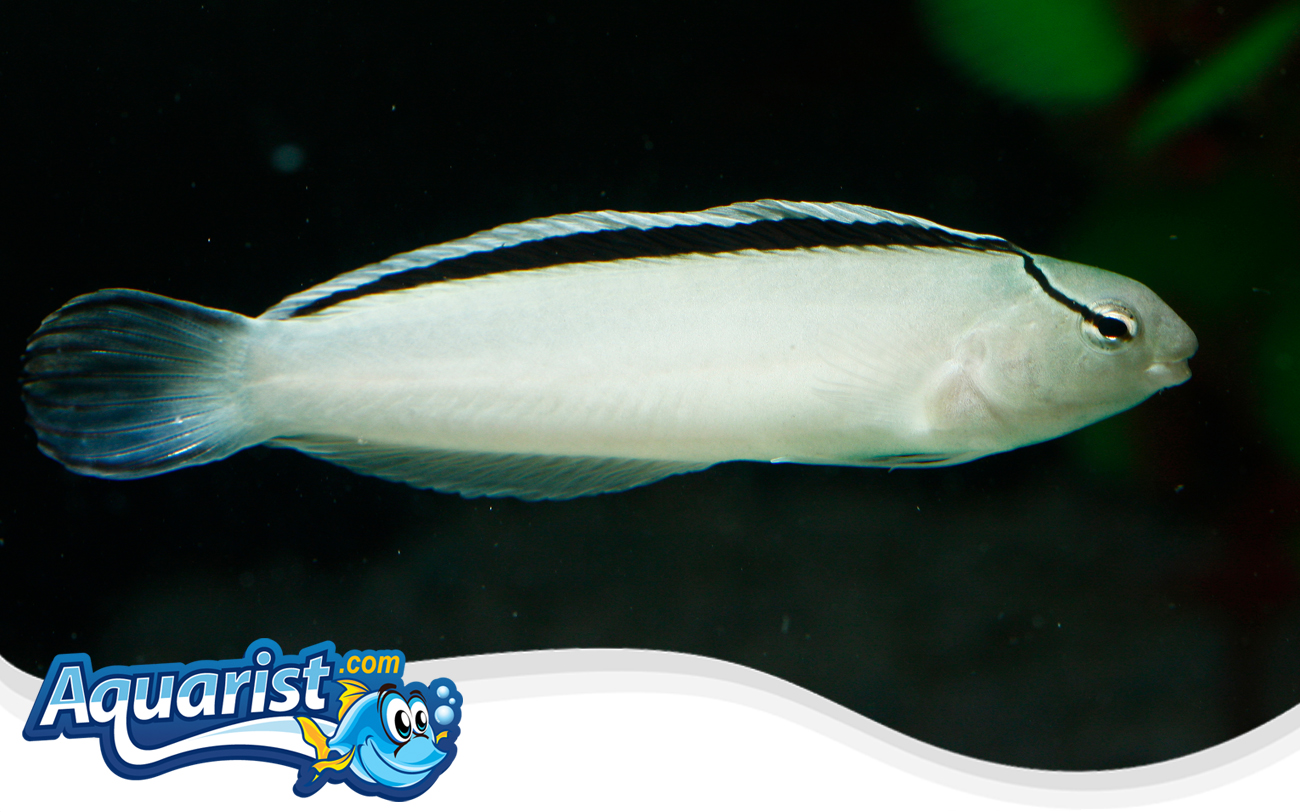Overview
- Found in the warm waters of the Western Pacific, particularly in reef slopes and coastal lagoons.
- Easily recognized by its sleek, elongated body with a pale white-blue coloration and a distinctive dark stripe running from head to tail.
- Possesses venomous fangs, which serve as a defense mechanism against potential predators.
- An active and social species that spends much of its time swimming in open water.
Feeding
- Omnivorous, consuming small crustaceans, plankton, and algae in its natural habitat.
- Readily accepts a variety of foods, including frozen mysis shrimp, brine shrimp, and marine flakes.
- Regular feedings ensure optimal energy levels and overall health.
- Supplementing with high-protein pellets helps support its active lifestyle.
Habitat
- Prefers reef environments with rock formations and overhangs for shelter.
- Often seen darting between coral branches or swimming freely in mid-water.
- Moderate water movement helps replicate its natural conditions.
- Requires a stable environment to thrive and display natural behaviors.
Fish Care
- Optimal water temperature: 76-82°F (24-28°C).
- pH level: 8.1-8.4, with a specific gravity of 1.023-1.026.
- Consistent water quality and efficient filtration are essential for long-term health.
- Adapts well to reef environments when provided with proper nutrition and care.
Compatibility
- Generally peaceful but can become territorial if housed with similar-looking fish.
- Best suited for reef aquariums with other non-aggressive species.
- Should not be housed with overly aggressive fish that may provoke defensive behavior.
- The venomous bite discourages predation, making it a unique addition to community tanks.
Aquarium Behavior
- Active and confident, frequently seen swimming in the mid-water column.
- Displays curiosity toward tank mates and interacts with its surroundings.
- May establish a preferred territory within the aquarium.
- Gradually becomes more outgoing and social with consistent care.


